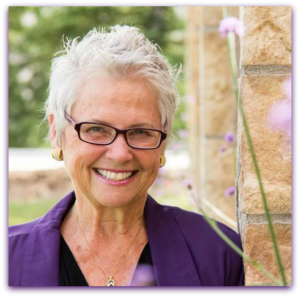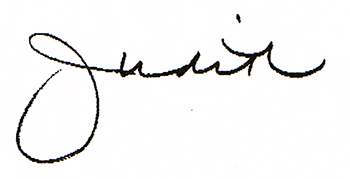Way Too often, fiction authors delay thinking about their marketing campaigns or a book launch. Or even building a tribe of superfans. 
When asked, “Who’s the target market for your book? Who’s your ideal reader? Or, who are the bestselling authors in your genre?” it’s a stumper for most. Too often, it’s a deer in the headlights experience.
My nonfiction authors are usually clearer, including the Newbies. They can rattle off the likes and dislikes of their ideal readers along with what authors their books and authors theirs would compete with.
No more. You need to … no MUST know … who you are writing and publishing for. Here are three tips on how to do that.
Tips to Define Your Ideal Readers
1. Start with your demographics.
If you’ve written a literary novel, think college-educated, your reader could be male or female. If your book is woven with a faith factor, the Christian market is your calling card with the primary reader a woman. If you are writing in the military or WWII genre, your reader is most likely male and over 65. If you are writing fantasy or sci-fi, your reader spreads the age and gender range. Of course, there are many genres. Your homework is to find out the “WHO” your reader is.
Below are a few questions to ask about your readers’ demographics and build your knowledge base. Social media can reveal lots. If you don’t know the answers… do the ASK. You can even do a survey or poll via social media. If you have an email list, how about creating a survey via a portal like Survey Monkey and gather up data to enlighten you.
You want to know:
Male or female?
Age range?
Income range?
Occupations?
Love their work?
Have an ideal job that they would like to work in?
Retired?
Schooling?
Job titles?
Religious preference?
Do they live in a specific region of the world or a country?
Any political preferences … or do they care?
Gay or straight?
Married, single or divorced?
Money Issues … are there any?
What fears do they have?
What’s the biggest problem they have?
Food and Drink likes and dislikes?
Are they caregiving from parents?
Etc. Etc. Etc.
Add to your mix:
What are their hobbies and interests?
Do they travel? If so, where?
Do they invest money? Or are they in deep debt?
What lifestyle or business problems cause sleepless nights?
What are their favorite TV programs?
What magazines might you find on their coffee tables?
Do they listen to the radio? What kind?
What social issues and causes do they care about? Are they activists?
What influencers (celebrities, experts, thought leaders, famous authors) do they follow?
2. Define how you can help them or entertain them.
Fiction readers help others … they ease “their pain”. What’s the pain? Maybe boredom or better yet, a quest for entertainment. Ask:
- Is reading your book pure escape?
- Does reading fiction solve problems in relating to their lifestyle or workplace?
- Does your book teach them anything? For example, historical fiction may reveal tidbits that readers had no idea about.
- Do mystery readers want complex who done-its? What about cliff hangers? If romance is the attraction…is it spicy or gentle… or what?
- Do they want prose or recipes within the copy? Do they want the protagonist to be quirky, an expert in something, what?
3. Find Readers Your Fiction
Answer questions about the topic of your book.
If your historical novel takes place during World War II, or any historical background is used with it, most likely you’ve done a lot of research that anyone interested in the war would devour.
You can find readers in LinkedIn Groups, Facebook Groups and on Quora.com, the giant question-and-answer site. Fiction authors often have the expertise, even at a basic level, on the topics they’ve written about. If you do, promote it … using it in your social media marketing posts along with appropriate hashtags.
Explore online forums to meet readers interested in your topic.
Do a quick Google search and you will discover dozens of forums interested in your research area plus the primary theme of your book. There are readers waiting to discover you who love sci-fi, fantasy, mystery, romance novels, crime thrillers, young adult, LGBT, etc.
Caution: don’t join these forums only to promote your book. As soon as you join. Instead, spend some time observing the postings of others on the site. Determine the best way for you to contribute. And remember, it’s a forum–meaning you can ask questions.
Look for offbeat places in your own community where your ideal readers gather.
Think locally. Check out best Meetup.com and do a search for your topic/genre … even book clubs. Even if they meet to discuss a topic, and not necessarily to discuss books, pull up your “expert” card. Why not offer to speak to their group (and sell books at the end). Many Meetup groups love hosting speakers who are authors.
There are big advantages to researching Meetup groups. Along the left side, you’ll find a column titled People in This Meetup Are Also In. Check the groups and a list below it where you can find similar groups. The organizer(s) of the group is also identified. With a click, you can email him or her and introduce yourself.
What say you? All these tips mirror what a nonfiction author should embrace. My question is: are you?
 Judith Briles is a book publishing expert and coach. She empowers authors and works directly with authors who want to be seriously successful and has been writing about and conducting workshops on publishing since the ’80s. Judith is the author of 37 books including Author YOU: Creating and Building Your Author and Book Platforms, Snappy Sassy Salty: Wise Words for Authors and Writers, and How to Create a $1,000,000 Speech. Her personal memoir When God Says NO-Revealing the YES When Adversity and Loss Are Present is a #1 bestseller on Amazon. Collectively, her books have earned over 45 book awards. Judith speaks throughout the year at publishing conferences.
Judith Briles is a book publishing expert and coach. She empowers authors and works directly with authors who want to be seriously successful and has been writing about and conducting workshops on publishing since the ’80s. Judith is the author of 37 books including Author YOU: Creating and Building Your Author and Book Platforms, Snappy Sassy Salty: Wise Words for Authors and Writers, and How to Create a $1,000,000 Speech. Her personal memoir When God Says NO-Revealing the YES When Adversity and Loss Are Present is a #1 bestseller on Amazon. Collectively, her books have earned over 45 book awards. Judith speaks throughout the year at publishing conferences.
Throughout the year, she holds Judith Briles Book Unplugged experiences: Publishing, Speaking, Marketing, and Social Media. All are two-day intensive limited to a small group of authors who want to be seriously successful. Join Judith live for the “AuthorU-Your Guide to Book Publishing” podcast on the Toginet Radio Network HERE.
Follow @AuthorUYOUBooks and @MyBookShepherd on Twitter and do a “Like” at AuthorU, and join the Facebook group Book Publishing with The Book Shepherd. If you want to create a book that has no regrets, contact me.
The Book Shepherd ® is a registered trademark

